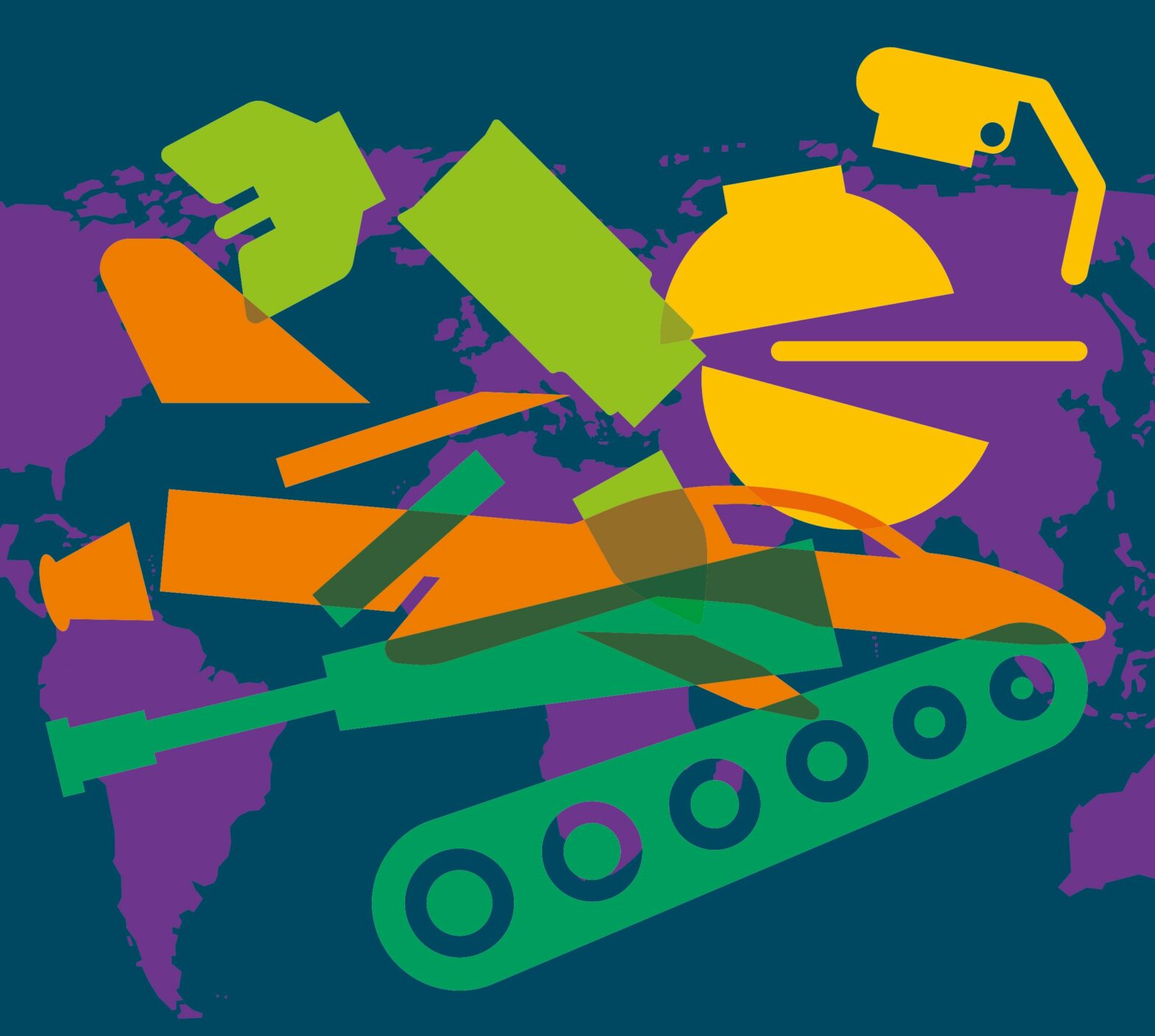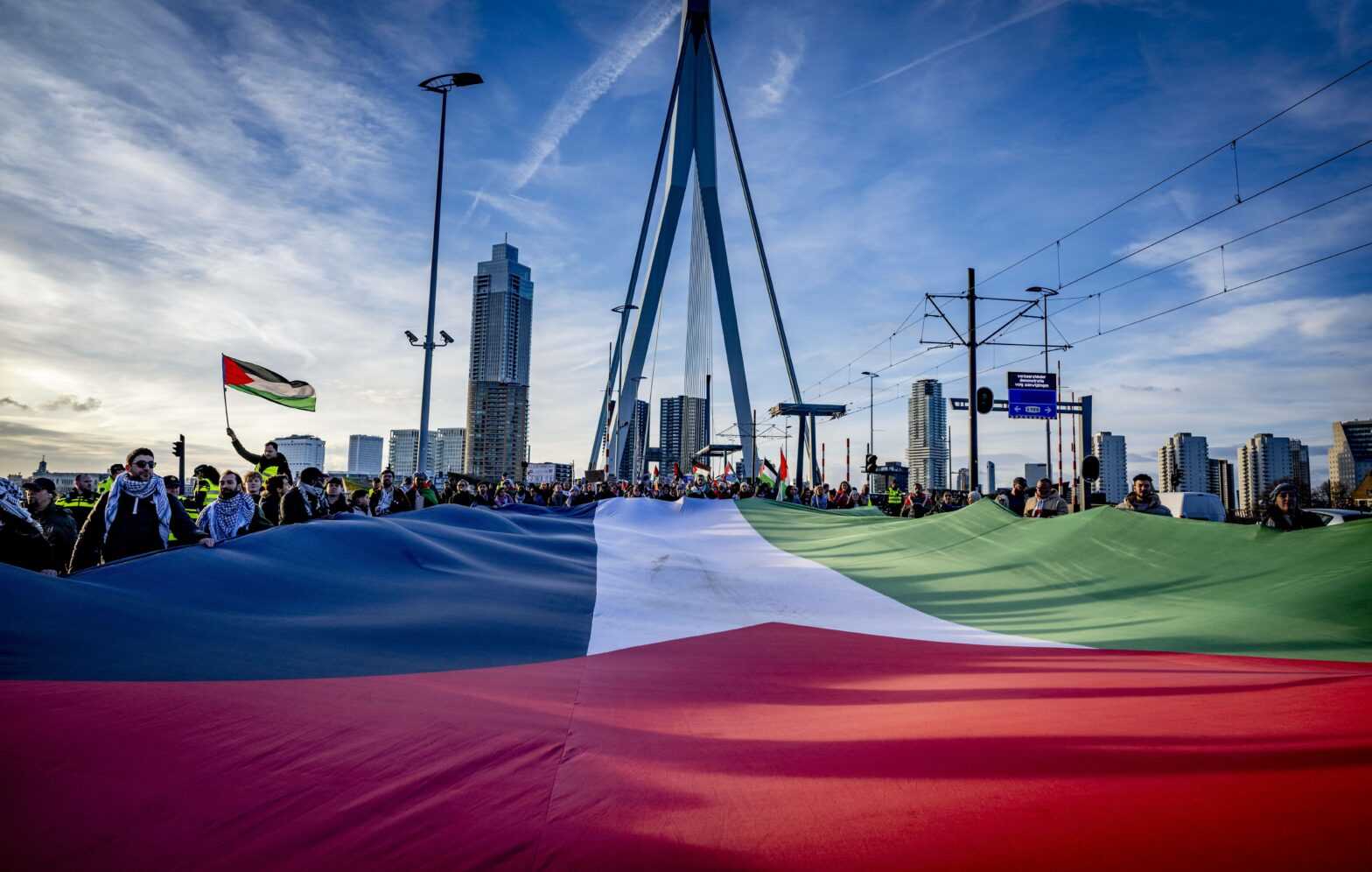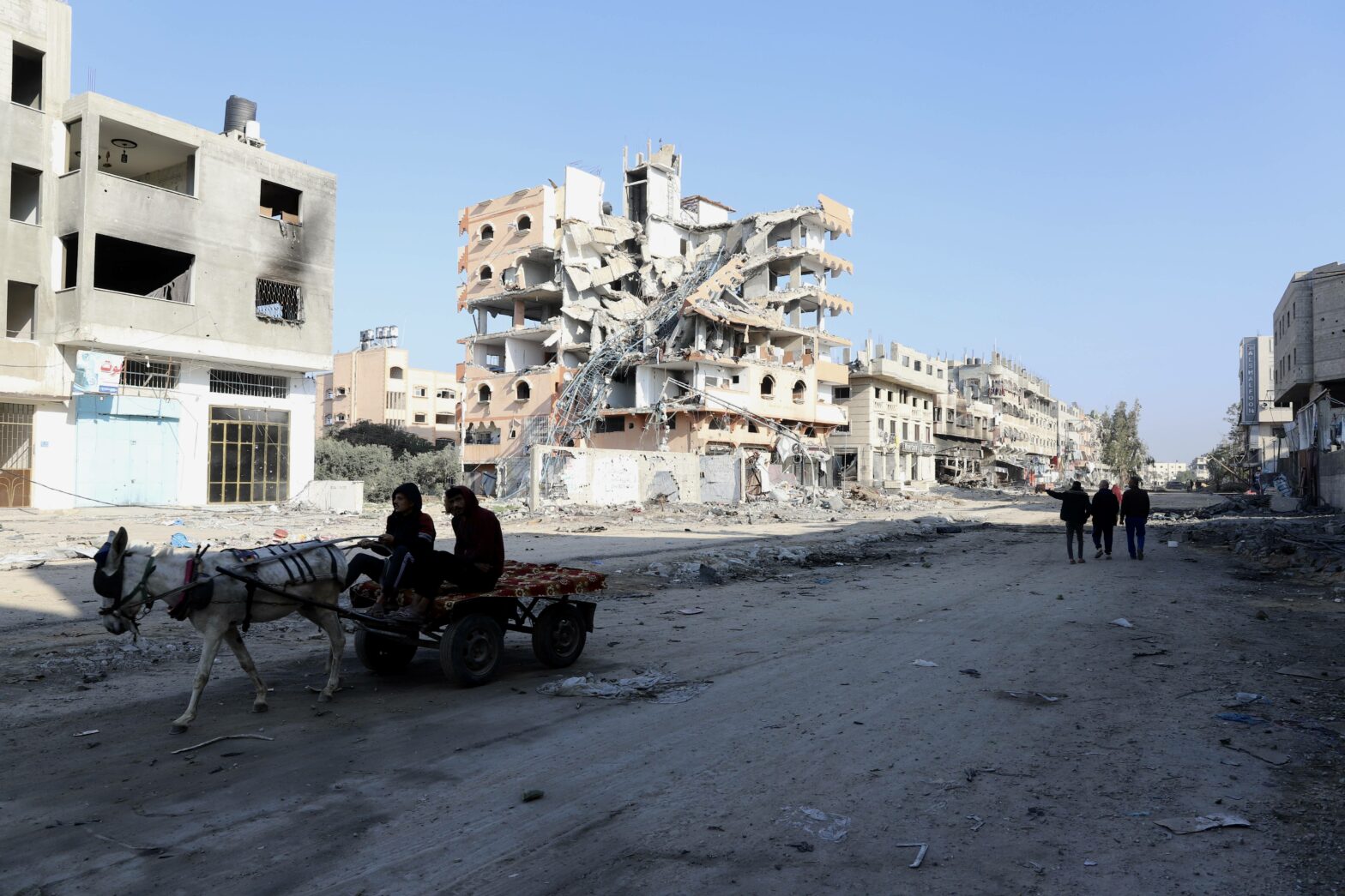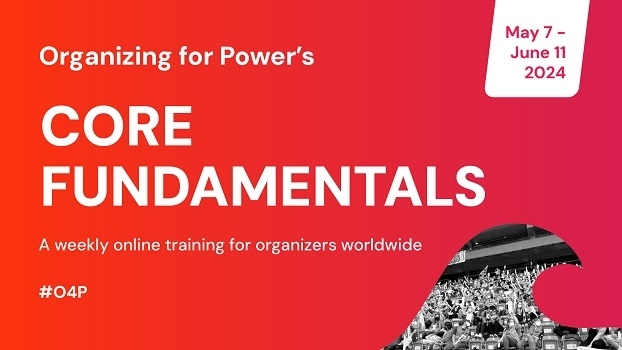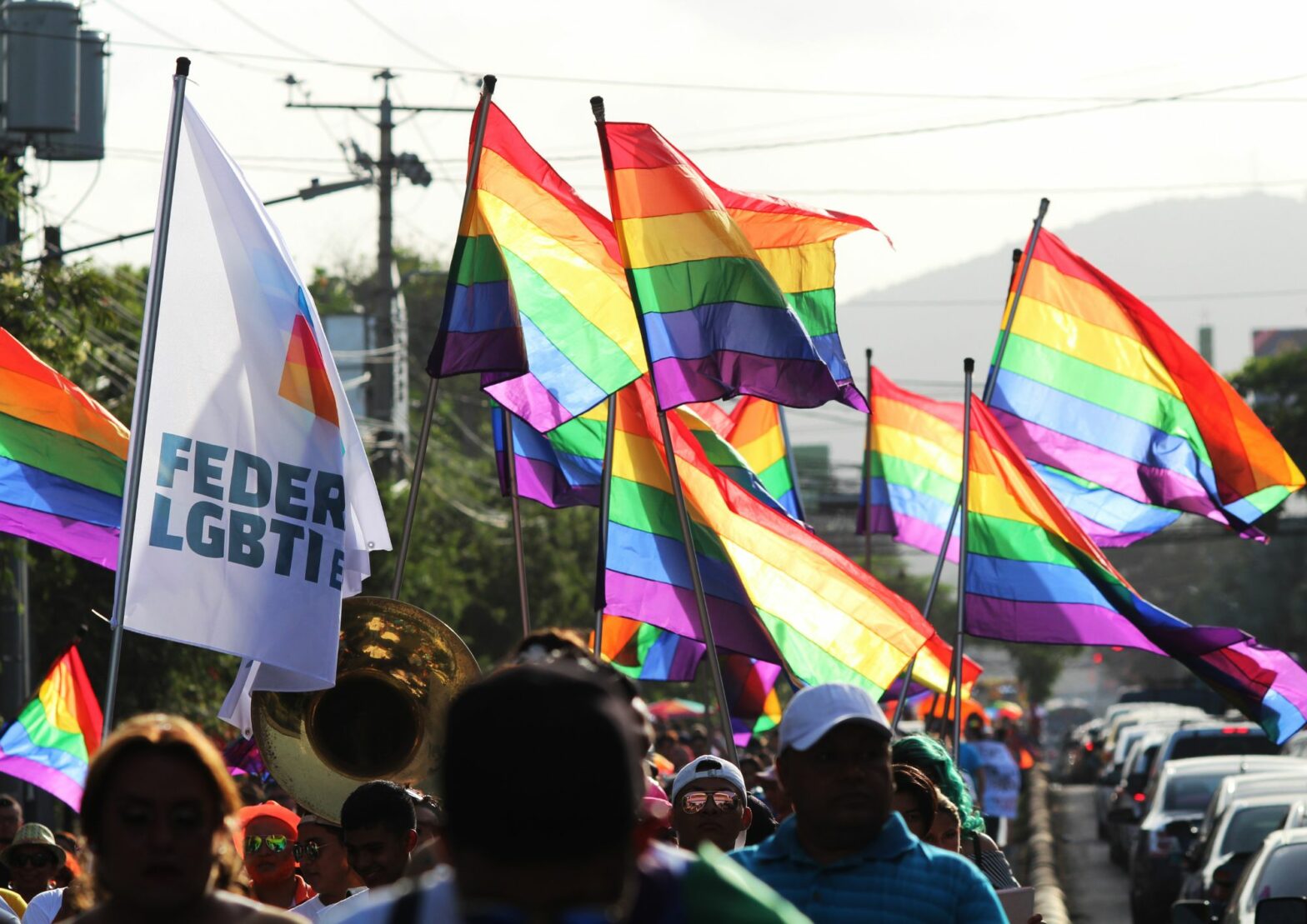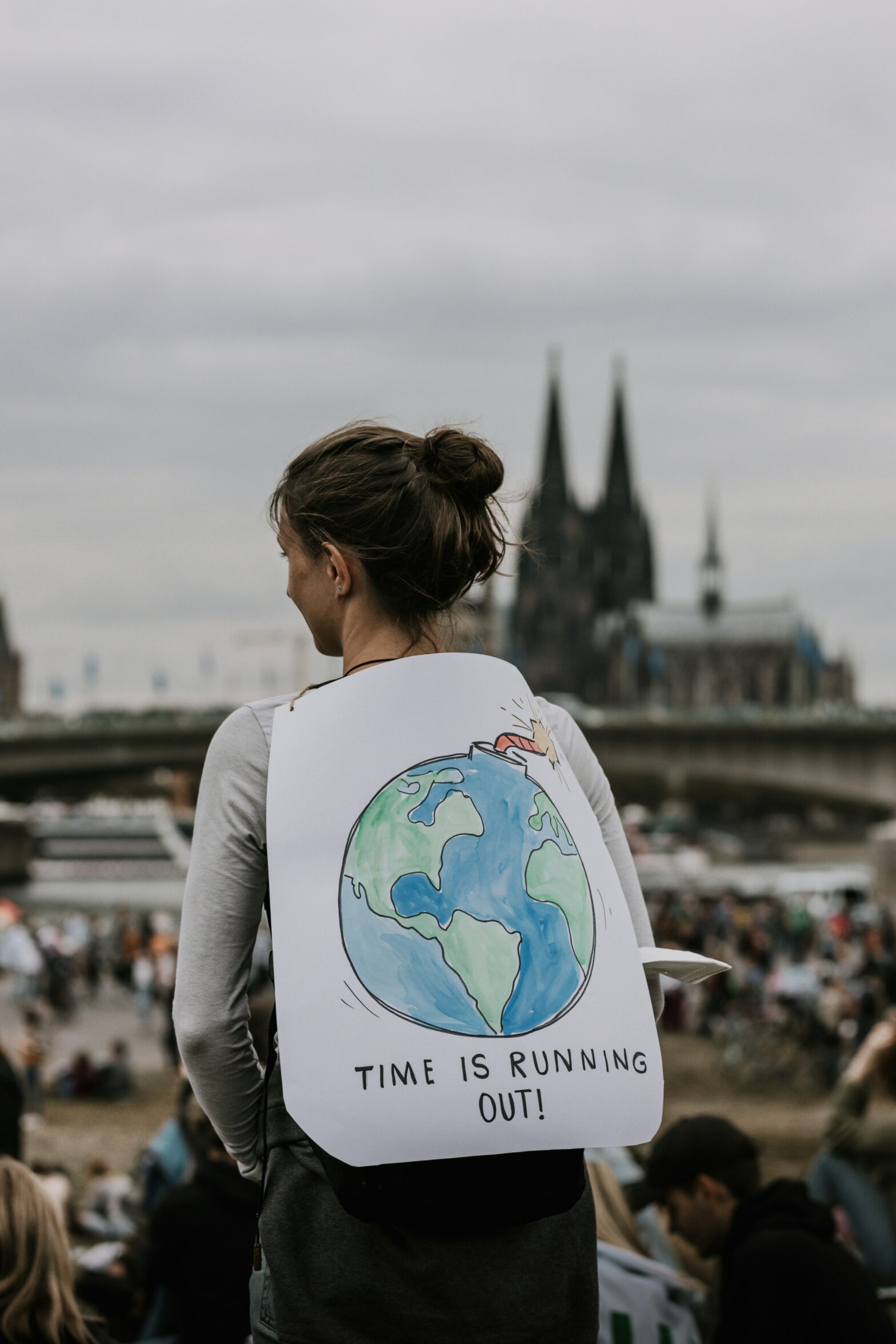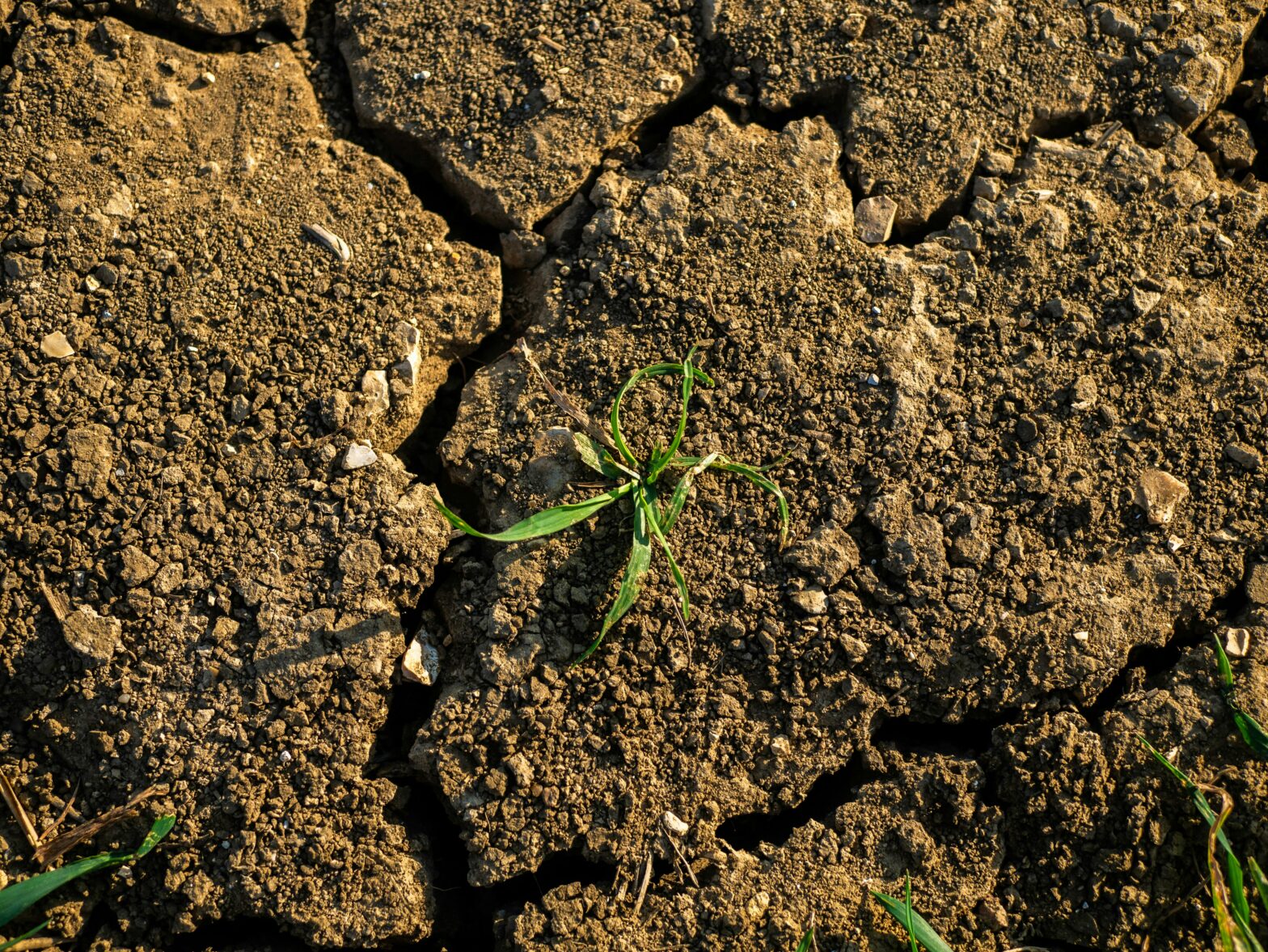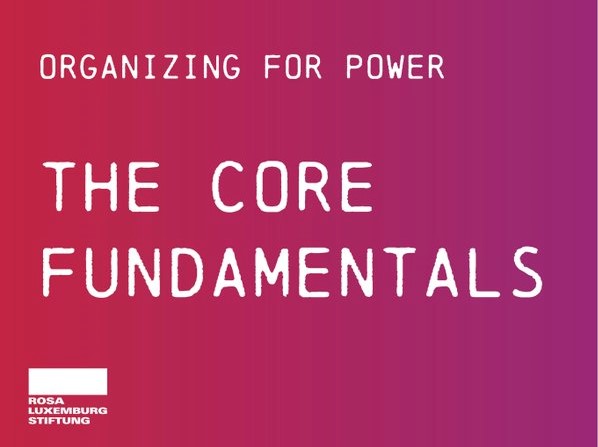Recent
RLS Geneva
Facts and figures against the wars of today and tomorrow The Atlas of Disarmament will be published here on 22 April in German and English Peacemaking victories were always hard-won. We were reminded of this by UN Secretary-General António Guterres at the Geneva Conference on Disarmament in February 2024. The victories were not miracles either. […]
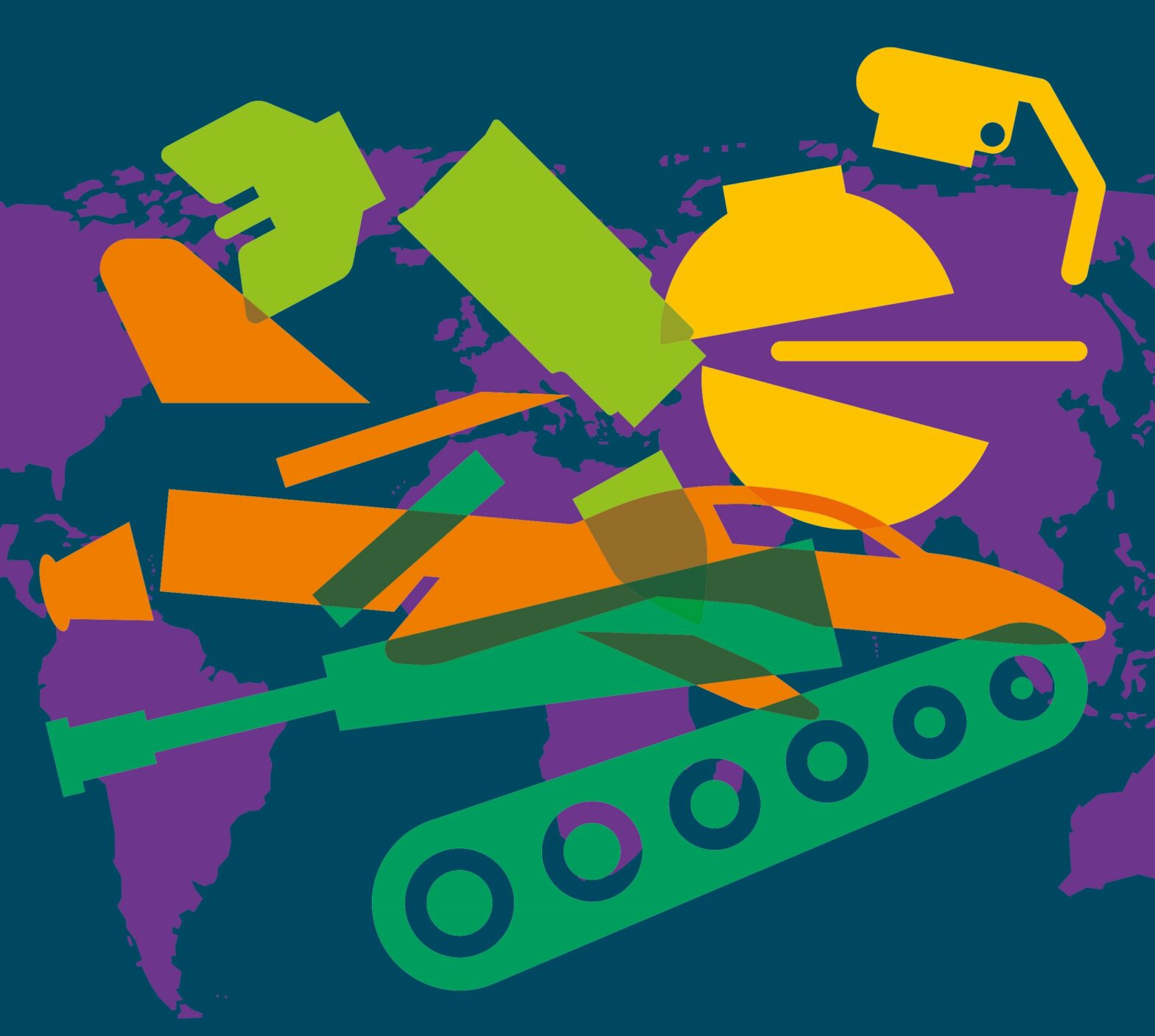
Dossier
Dossier
Positive PeacePeace is more than the absence of war. Modern (violent) conflicts have not only direct but also indirect and structural causes, such as poverty, hunger, political discrimination or social inequality. They are multi-layered and complex, with direct, e.g. political discrimination, human rights violations and distributive injustice, and indirect aspects such as consequences of climate change and environmental damage or competition for sales markets and global resources playing a role. The term “positive peace” takes these aspects into account and aims at a lasting peace in which not only direct violence is ended, but also indirect and structural forms of violence are eliminated preventively and sustainably. Positive peace means not thinking about peace only when shutting the stable door after the horse has bolted. The causes of conflicts must be taken into account. Conflicts usually only receive attention when they have become violent. Often, however, conflicts are already there long before they become openly violent. Often they are then reduced to being religious or ethnic conflicts or purely geopolitical or regional conflicts. Mostly, however, these conflicts begin as conflicts of distribution or liberation, which are then fought out along confessional or ethno-regional borders as well as at the international and regional level. Critical conflict analyses must therefore analyse the causes of conflicts and examine the various actors, national and international, conflict profiteers and conflict sufferers, and their interests. The conflict analysis is followed by the question of conflict transformation, i.e. peace policy. Positive peace policy thus starts with the causes of conflicts, which must be eliminated preventively. A positive peace policy must therefore consider, analyse and criticise these causes of conflict, e.g. political discrimination, human rights violations, unjust socio-economic distribution, competition for sales markets and global resources, geopolitical interest politics or climate change. All these things fall under the concept of causes of conflict, which must be addressed preventively if peace is to be more than just the temporary absence of war.
Stay Up To Date
The Rosa Luxemburg Stiftung—Geneva Office sends out regular e-newsletters with news, upcoming events, and recent publications. Sign up for the Newsletter on our homepage to stay up to date.
Focus
Filmerei & RLS Geneva
In early October 2023, “The Invisible” had its world premiere at the 18th Marbella International Festival. The movie, produced by Filmerei and Rosa Luxemburg Stiftung, documents the everyday life of migrants in southern Spain, their inhumane work conditions and their hopes for a better, healthier and safer life. Watch the movie below! Synopsis Watch “The […]
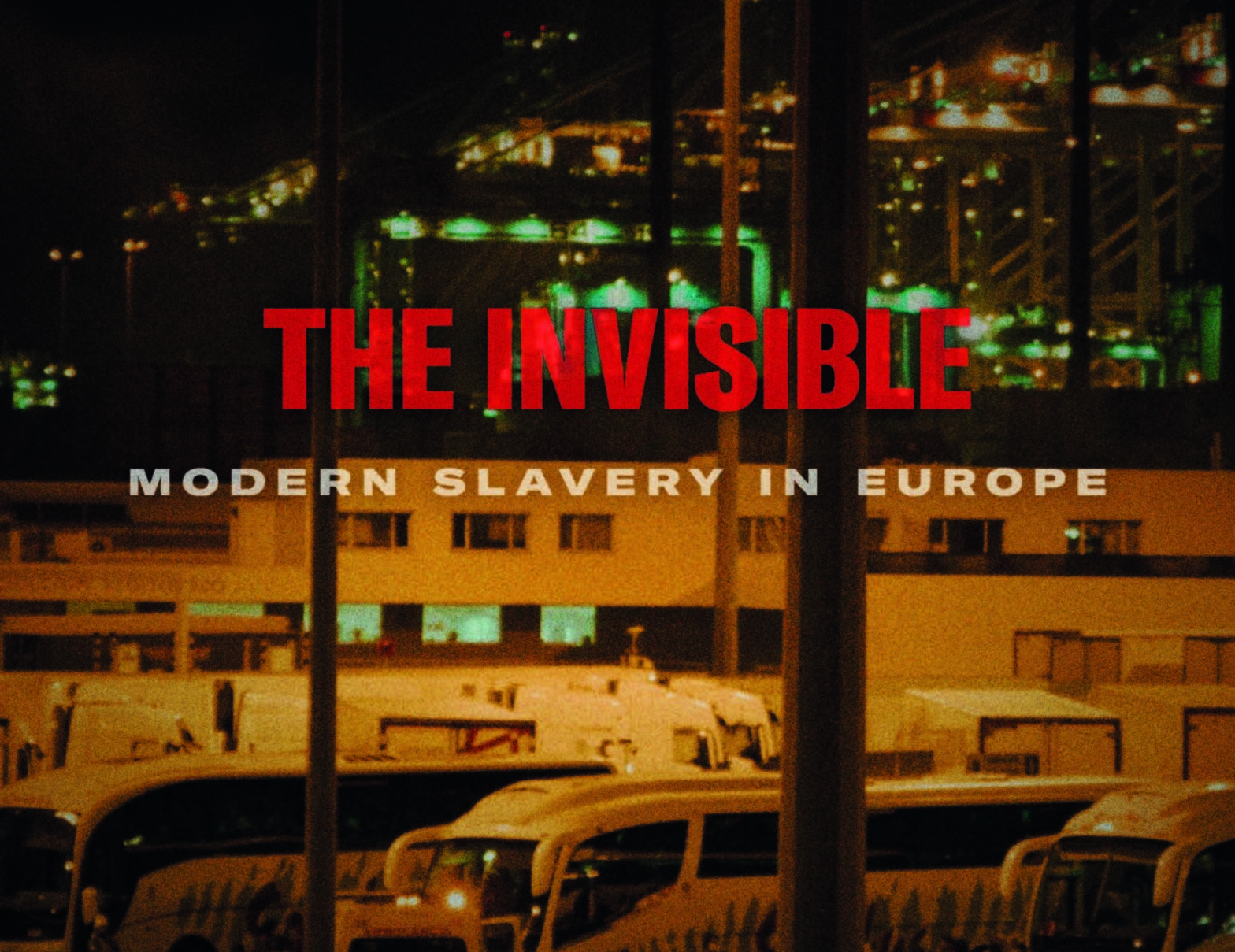
Our Work
Social Rights
We are working towards a world that guarantees social justice. The working focus on social rights aims to globally strengthen the discourse on social rights and actors involved in this field. Because social rights must always be Global Social Rights. This is to be achieved on the one hand through the media, i.e. through publications and other media products, and on the other hand through partner projects and workshops.
International Organising
Exploitation through poor social and environmental standards is the flipside of a global value chain. Wages below the comparable minimum wage, health hazards at the workplace, lack of social security in the event of illness, accident or old age, and precarious employment relationships pose major challenges worldwide. We support better networking and organisation along transnational value chains, which enables trade unions to assert the interests of employees even in globally operating corporations and globally branched production processes.
Socio-Ecological Transformation
A sustainable fight against climate change is only possible through a far-reaching socio-ecological transformation. We therefore support the promotion of the concept of "climate justice" as well as progressive "just transition" approaches and transformative adaptation measures. The goal of all efforts must be a global economic order that is resource- and climate-just and capable of ensuring the self-renewal of the planet.
